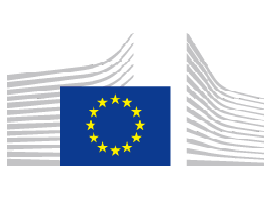EU proposes new measures that may bring end to bitcoin anonymity
 Bitcoin anonymity may be a thing of the past in the European Union. Yesterday, the European Commission released a press release that outlines an Action Plan to strengthen the fight against terrorism financing. The plan will focus on disrupting sources of revenue used by terrorist organizations and using financial movements to track terrorists.
Bitcoin anonymity may be a thing of the past in the European Union. Yesterday, the European Commission released a press release that outlines an Action Plan to strengthen the fight against terrorism financing. The plan will focus on disrupting sources of revenue used by terrorist organizations and using financial movements to track terrorists.
At the centerpiece of the plan is a number of amendments to be made to the Fourth Anti-Money Laundering Directive, which was adopted in May 2015. Virtual currencies and prepaid cards are among the areas to be addressed. The document states there are vulnerabilities in these new financial and payment systems that need to be handled while balancing the need to protect the rights of citizens and companies.
One amendment proposes to bring all virtual currencies under the oversight of the Anti-Money Laundering Directive. This would bring an end to customer anonymity, as platforms and exchanges would be required to apply “customer due diligence controls” whenever a request to convert digital currencies to real currencies is made. Another amendment related to prepaid cards proposes to widen verification requirements and lower identification thresholds.
Other amendment proposals include:
- Give EU Financial Intelligence Units easier access to information on bank and payment account holders.
- Include a list of checks that financial institutions should conduct on financial flows from high risk third party countries.
- Widen scope of information available to EU Financial Intelligence Units.
Proposed amendments will be made by the end of the second quarter of this year.
These proposals come despite recent evidence that there isn’t any connection between virtual currencies and terrorist funding. The Stack points out the Europol report released on January 27 that stated, despite third party reporting, there has not been any law enforcement confirmation that bitcoin or other anonymous currencies are being used to fund terrorist activities. The report also says that terrorist financing hasn’t changed in recent years, and that foreign fighters who travel to conflict zones are likely self-funded.
Image via the press release PDF

![[Guest Post] The True Use Cases for Bitcoin and Its Role in Banking the Unbanked](https://coinreport.net/wp-content/uploads/2019/04/Ray-Youssef-Paxful-CEO-400x230.jpg)










